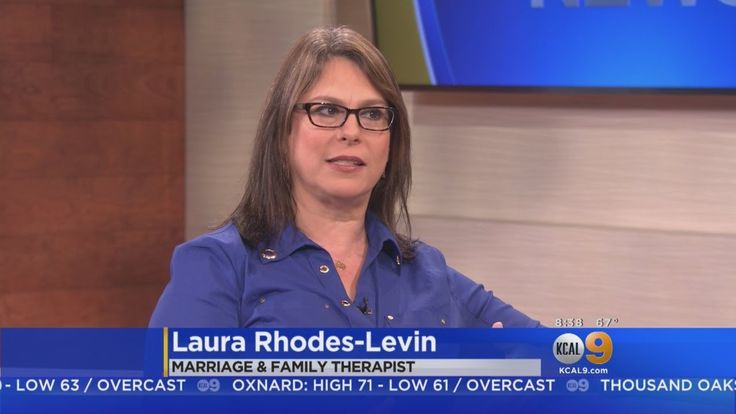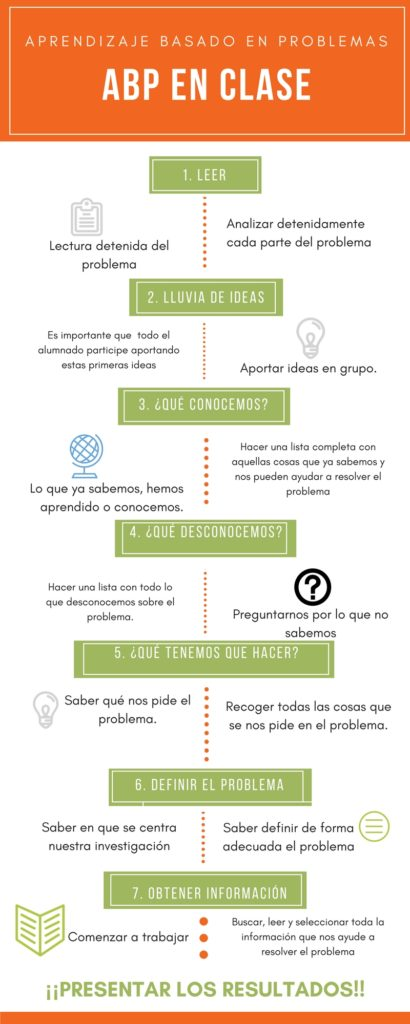Dealing with an empty nest
How to cope when kids fly the coop
Jump to section
What is empty nest syndrome?
What are the symptoms of empty nest syndrome?
How long does empty nest syndrome last?
3 stages of empty nest syndrome
Are some parents more susceptible than others?
How to deal with empty nest syndrome
Being a parent sure has its ups and downs. From hearing their first words to waving goodbye on their first day as a senior in high school, having children is full of significant life events.
But there’s one big event in family life that many parents struggle with. And that’s when their children leave home.
Empty nest syndrome is the grief that many parents feel when their children move out of the home. While it isn’t a clinical diagnosis, it is a common phenomenon in which parents experience sadness and loneliness. They grieve the loss of a lifestyle and relationship that was part of their identity.
Let’s look at some symptoms of empty nest syndrome and how you can healthily deal with your children leaving the nest.
What is empty nest syndrome?
Empty nest syndrome is the sadness or emotional turmoil that parents grapple with in the wake of their children growing up and moving out of their family home. ‘Nest’ refers to the popular saying that children 'spread their wings’ when they grow up and move on.
We often hear the words ‘empty nest syndrome’ when the end of the high school or college season draws near. It stirs up some mixed feelings: anxiety, excitement, relief, and sadness.
On the one hand, you are proud to see your child go out into the world as an independent young adult. On the other hand, you can’t help but worry over their well-being while grieving the closeness that came with living under the same roof.
The good news is that you are not alone in your experience of empty nest syndrome.
What are the symptoms of empty nest syndrome?
Empty nest syndrome manifests in different ways for different people. Let’s look at some common symptoms.
Loneliness
Following the departure of your beloved child, you may feel overwhelmingly alone. It can be isolating to wake up one morning and remember that your children are no longer living at home with you.
It can be isolating to wake up one morning and remember that your children are no longer living at home with you.
Emotional distress
Empty nest syndrome can be a rollercoaster ride. One minute you are crying at the sight of a family photograph, and the next, you are fantasizing about what to do with your newfound space and freedom. This might lead you to feel emotionally exhausted.
A loss of purpose
Being a parent, particularly a stay-at-home parent, is a full-time job. When you no longer see your kids daily, it can leave an enormous vacuum. This void, or sense of nothingness, may cause you to feel as if you are lacking in purpose.
Fear of a lack of control
When your child moves away, you can no longer keep tabs on them. This can feel like a great loss of control for many parents. You may feel tempted to check up on them every hour and want to know their every move.
Worry and anxiety
Hopefully, you trust your child and have faith in your ability to raise a capable individual. Nonetheless, you may feel like you are wading through a fast-flowing river of worry and anxiety. It’s normal for your imagination to run wild and catastrophize minor troubles.
Nonetheless, you may feel like you are wading through a fast-flowing river of worry and anxiety. It’s normal for your imagination to run wild and catastrophize minor troubles.
Depression
For the most part, a parent will spend around 18 years looking after and living with their child. There is a deep sense of grief and sadness that comes with learning to love them from a distance.
How long does empty nest syndrome last?
Every parent will have a different experience of empty nest syndrome. It may only last a few weeks for some, while it may persist for years for others.
Typically, parents will experience the symptoms of empty nest syndrome for a few months. ‘A few months’ may be anything from two months to a whole year.
One survey found that it takes parents an average of three months to get used to an empty house.
However, empty nest syndrome can start as an anticipatory emotional response before your child has actually moved out.
It is completely okay if it takes you a bit longer to overcome these feelings. Everybody has their own timeline for processing loss and adapting to a change of life stage or change in lifestyle.
Everybody has their own timeline for processing loss and adapting to a change of life stage or change in lifestyle.
As much as possible, don’t time-pressure yourself into a state of false emotional well-being.
That being said, it’s important to realize that clinical depression may be misconstrued as empty nest syndrome. 5% of the global population struggles with depression. If your symptoms persist for a prolonged period of time, we highly advise that you seek professional guidance.
3 stages of empty nest syndrome
According to Carin Rubenstein’s widely renowned book, Beyond the Mommy Years, there are three stages of empty nest syndrome:
1. Grief
When your child first leaves home, you are likely to feel overcome by feelings of sadness and loss. You may be feeling teary-eyed and emotionally triggered by the simplest things.
This sadness could make you withdraw from the world for some time as you try to deal with the immense change that has taken place in your life.
2. Relief
After a few months have passed, you may find yourself relishing your newfound freedom.
Instead of the mental load from having to drive your kids everywhere and never-ending housekeeping, you now have time for self-care and hobbies. This newly liberated lifestyle is bound to inspire a sense of relief.
3. Joy
Once you have ridden the roller-coaster of sadness, reprieve, and freedom, you should reach the stage of joy. Hopefully, you have settled into your new self-determined rhythms. Perhaps you might be establishing new social networks or finally booking that couple’s getaway. Or maybe, even a solo vacation.
You can rest assured that with your conscious parenting, you have sent your child out into the world with all the necessary love, knowledge, and support.
Are some parents more susceptible than others?
No one can predict their experience of empty nest syndrome. However, it has been noted that a few types of parents are slightly more susceptible to experiencing the symptoms of empty nest syndrome.
Helicopter parents
Helicopter parents pay incredibly close attention to the behaviors and problems experienced by their child. They tend to intervene at the minor hint of struggle or trouble.
They ‘hover overhead,’ hence the name. Their instinct to protect and nurture may override the rational voice in their head that assures them their child needs space.
Stay-at-home parents
The more time you spend with your children, the more you feel responsible for meeting all their needs. You become each other’s full-time companion.
Parenting is, essentially, your job. Realizing that your role in their lives has to shift dramatically is challenging to accept.
Single parents
As a single parent, you may feel solely responsible for your child’s well-being and happiness. When they leave, you cannot go through the emotional struggles with your child’s other parent. This can make the feelings of loneliness and confusion worse.
As 90% of single parents are women, it is more likely that a mother will experience heightened symptoms of empty nest syndrome.
Parents who rely on their parent roles for self-identity
Many parents, particularly full-time parents, get their sense of purpose and motivation from their roles as parents. Parenthood is integral to their sense of identity. When they cannot assume that role, it can trigger feelings of insecurity and self-doubt.
Parents with marital struggles
In some marriages, the only thing keeping the relationship going is the mutual love for their children. Often, parents want to protect their children from the pain of parental divorce.
Even in a less extreme instance, a struggling relationship may worsen feelings of depression and isolation. And the struggles within the relationship may become more apparent once the children leave the house.
How to deal with empty nest syndrome
As difficult as it is, there are ways for you to cope with empty nest syndrome. Here are some ideas:
1. Make social connections
Use your free time to reconnect with old friends. Understandably, parents may neglect their social relationships as they barely have time for themselves, let alone others.
Understandably, parents may neglect their social relationships as they barely have time for themselves, let alone others.
Try to enter a new social space that offers new connections. Investing in friendships is a healthy distraction, and it alleviates feelings of loneliness.
2. Seek professional help
If your symptoms of empty nest syndrome are severe and they persist, you should seek professional guidance. A trained counselor can offer grief support and help you manage your emotions.
The symptoms of depression may be confused with the symptoms of empty nest syndrome, and if you suffer from the former, you can utilize safe and effective therapies.
3. Set goals for the future
Adopting a forward-looking mindset alleviates feelings of grief. It sparks motivation and promotes a healthy sense of perspective. Setting and achieving goals also encourages the development of your authentic identity.
4. Take up a new hobby or career
Exploring different facets of your identity and expanding your interests can be an incredibly fulfilling journey.
Try out a variety of new activities in your area, whether that’s a book club or yoga classes. A new physical activity is a wonderful way of broadening your social circle while maintaining your physical health.
Or maybe a new career path may be the self-confidence boost you need. Changing your career allows you to embody an empowered side of yourself that you may have neglected.
5. Reconnect with your partner
An empty nest is a perfect opportunity to spend quality time with your significant other. Use this new space and time to reignite the romance in your relationship.
This is the ideal time to create a loving home environment and a mutually supportive, compassionate relationship. In fact, 63% of empty nesters report they became closer with their spouse after their children left home.
6. Practice self-care
Set aside time to take care of yourself. This could mean taking a relaxing bubble bath, cooking a delicious meal, going for a run, or journaling.
Everyone has a preferred self-care ritual. Find what works for you.
7. Focus on the positives
You are allowed to feel sad about your child leaving home. That being said, their moving out is a normal and positive change. You should celebrate your child’s independence. Feel excited about all the opportunities that await them with learned optimism.
After all, you deserve a huge congratulations for getting them to this point!
8. Keep in touch with your children
Thankfully, we live in an age of technology that allows for effortless global communication. Your child may live one block away or on the other side of the planet. Either way, you can still stay in contact.
Physical distance does not equate to emotional distance. Stay in touch to show your child that you still love them unconditionally.
Empty nest syndrome is normal: you are not alone
While parents should encourage their children to blossom into young adults with their own independent life, sending children off into the world can be difficult.
If you are experiencing the emotions of empty nest syndrome, it’s important to remember that you are not alone in feeling a sense of loss.
Although it is common in many parents around the world, don’t feel pressured to compare your journey to others or to ‘snap yourself out of it.’
Invest in self-care and healthy relationships, and focus on the positive aspects of your child’s young independence.
If you need additional support, get in touch with BetterUp. One of our expert coaches will be happy to support you.
How to Deal With the Empty Nest and Depression
Gone are the days when you were always on your toes, going after your children and tidying the house. The house is now quiet, and the feeling is new. So what do you do now that the kids are all grown up? Seeing how different your home has become now that the children are gone can make you feel sentimental, nostalgic, and depressed. This is true, especially if you’re a stay-at-home mother who spends a significant part of your life caring for your children.
Empty Nest Syndrome
Empty nest syndrome (ENS) is a period of mourning and adjustment for parents. This grief of parents stems from the moment their children leave their homes.
ENS is a significant life change that typically affects the 40–50 age group. It is more common among women than men. Many mothers may experience mood swings, irregularities in sleep, hot flashes, and other disturbing symptoms. Once adult children leave the family home, mothers start to feel worthless. They have dedicated their lives to caring for their children. Then, when the children are all grown up, they feel that their “job” is over and nothing is worthwhile.
You’re suffering from empty nest depression if you experience the following:
1. Loss of Purpose
It is common for many parents to feel lost and confused after their children leave the nest. As young parents, their days were filled with their children’s school activities and family activities. Now that the children have lives of their own, it’s difficult to even start the day.
2. Frustration
You are now frustrated because you don’t know what is happening to your children. You used to know what they were up to every single day. You are also frustrated because you feel you no longer have control over them.
If you are used to being a helicopter parent, it’s time you forget about being one. Do your best to give your children their own space to breathe and live their own lives. You have prepared them well for adult life. Be confident and believe that your children can survive the harsh realities of adult life. At the same, offer them support if they need it. Remind them that you don’t stop being their parent just because they don’t live in your house anymore
3. Emotional Suffering
It is normal to feel sad during this stage in your life. The list below shows the possible reasons causing this feeling of sadness.
- Your children are now adults.
- You didn’t spend time with your kids when they were younger.
- You are scared of getting older.

- You are uncertain about your married life.
- You didn’t reach the goals you aspired for in life.
4. Marital Stress
Most couples tend to focus more on the children and neglect their marriage once the kids enter the picture. Couples are then left staring at each other as soon as the children move out of the nest. They don’t seem to know how to interact with each other without their children. Getting to know each other again can be such a hassle. But, you started this family together. This means you can get out of this empty nest phase better together.
5. Anxiety about Your Children
You are scared of what your children might be going through outside in the real world. This anxious feeling is normal. However, be cautious of excessive anxiety.
You can check up on them the first few days after they leave. Your children would appreciate it. Just make sure not to bother them every day as this may annoy them.
Also, don’t stalk your kids online via their social media accounts. They’d know where to find you if they need you, so let them live their lives whichever way they want to.
They’d know where to find you if they need you, so let them live their lives whichever way they want to.
Parents suffering from empty nest syndrome have several common depressive symptoms such as:
- Finding change stressful
- Feeling that moving out is a difficult emotional experience
- Unhappy marriage
- Feeling hurt because their children are no longer dependent on them and are exploring the world independently
- Worrying their children are not equipped to take on roles as young adults
Who Is More Likely to Experience Empty Nest Syndrome?
Research suggests that full-time parents are more likely to have ENS due to the following reasons:
- They can’t live alone.
- They’re struggling with their marriage.
- They derived their self-identity from their parenting roles.
Challenges Brought by Empty Nest Syndrome
Having ENS comes with a number of challenges, such as:
- Establishing and maintaining a new type of relationship with your adult child
- How to be a sweet couple again now that the children are not around anymore
- How to fill up your daily schedule now that there are fewer things to do
- Inconsideration and lack of sympathy from others because they don’t understand you
How to Deal With Empty Nest Syndrome
There are so many ways empty nesters can battle ENS. They can communicate with their children online, explore a new hobby, and make time for their friends who are also empty nesters.
They can communicate with their children online, explore a new hobby, and make time for their friends who are also empty nesters.
If only one adult child has left the family home and you still have other children living with you, you can start to prepare yourself for the empty nest. You can gradually adjust to the idea that your children will eventually have lives of their own. However, this can be quite challenging for parents with only one child.
If you have experienced major depression in the past, you are most likely to develop empty nest syndrome. Here are some tips on how you can cope with ENS.
1. Acknowledge Your Grief
Allow yourself to be sad about feeling empty. Acknowledge your feelings once you’re done crying. Talk about your sadness to your partner or friends. Don’t hesitate to seek their support and advice if you need them.
2. Give Yourself Time
Change is hard and adjusting to it takes time, so don’t pressure yourself to feel better right away.
This is the time you tick items off your bucket list. If you have dreams of finishing school, now is a perfect time to pursue them. Join socio-civil groups or do volunteer work if you’ve been putting off both due to lack of time.
Start keeping a journal or take an interest in meditation or yoga. Make sure to keep your health in check. Eat healthily and be diligent in visiting your doctor for checkups.
3. Focus On the Positive Side
Many parents report that they have better relationships with their children after they leave their family home. As an empty nester, you now have more time for yourself. You can start developing your relationships with other family members, friends, and colleagues.
4. Seek Treatment
You should seek treatment if the depression is unbearable and persists longer than two weeks, as there should be a line that differentiates ENS from depression.
Treatment is needed to deal with depression as a mental illness. Treatments range from joining support groups, talking to a psychologist for counseling, and visiting a psychiatrist for antidepressant medications. Mental health professionals can also recommend treatment facilities in your area to help you deal with your depression with greater convenience.
Mental health professionals can also recommend treatment facilities in your area to help you deal with your depression with greater convenience.
Adult Children Should Help Their Parents Cope
Adult children are often excited about venturing on their own and claiming their independence. Because of this, they often forget about their parents.
Parents are always supportive of their children. Even if they feel sad and uncomfortable about the idea of their children leaving them, they have to put on a brave face.
As an adult child, don’t forget about your parents. A big part of their lives was focused on you. They still think about you even if you’re miles away from them.
Show that you appreciate your parents by helping them cope with empty nest syndrome. Here are some tips:
- Call them. You don’t have to call them every day, but be sure to make an effort during special days like birthdays, Christmas, New Year, and anniversaries.
- Visit them even for a short while on your day-offs.
 Invite them to spend some trips or vacations with you.
Invite them to spend some trips or vacations with you. - Set up get-togethers for your parents and their friends. This is a great way for them to ease the sadness that they feel about you leaving.
- If your parents are really struggling with ENS, accompany them to a mental health professional. Be with them during their sessions. You can also look for support groups that they can be a part of.
Remember that your parents are growing old. They need to make as many happy memories as possible, so try as hard as you can to make time for them.
A Bittersweet Feeling
You have spent almost or more than half of your life with your children, so it can be very scary once they leave home. Bear in mind that your feelings are normal and valid. Every empty nester is familiar with the pain and sadness you’re going through now that your children are gone and have lives of their own.
Feeling alone and depressed can be unbearable, especially if you miss your children a lot. Kentucky Counseling Center (KCC) understands what empty nesters go through. Our professional staff can help you adjust to this new chapter of your life with their support and advice. Contact us now and avail of our counseling services that can help you make your life as an empty nester easier and more worthwhile.
Kentucky Counseling Center (KCC) understands what empty nesters go through. Our professional staff can help you adjust to this new chapter of your life with their support and advice. Contact us now and avail of our counseling services that can help you make your life as an empty nester easier and more worthwhile.
5 signs of empty nest syndrome
It seems like yesterday your baby was born when you held him in your arms in the hospital and promised to take care of him and love him for the rest of your days. This will never change. But what has really changed is your child, who is no longer that child and has now become an independent person, able to take care of himself ... he leaves home, becomes independent. And you, you don't know what to do with yourself, now what?
This feeling is normal and is called "empty nest syndrome". This is much more common than you might imagine. If you're feeling a bit overwhelmed and very sad about your child leaving home, you may be suffering from this syndrome. If you're not sure if this is the case, watch out for 5 tell-tale signs that it is... That you're experiencing empty nest syndrome.
If you're not sure if this is the case, watch out for 5 tell-tale signs that it is... That you're experiencing empty nest syndrome.
Index
- 1 Feeling of loss
- 2 Relationship problems
- 3 Emotional stress
- 4 Frustration due to lack of control
- 5 Constant anxiety
Feeling of loss what to do with your life now.
Even though you have friends, family, work and other activities that you can do every day, you are dominated by a feeling of loss, a feeling of emptiness.
These feelings are normal for all parents when their children have recently left home. You are still a father or a mother, a role that you will never stop playing, it's just that now your child is flying... and you have taught him to fly. Until you begin to feel more normal in this new phase of life, you will continue to feel that way.
Relationship problems
In many cases, couples forget that they are couples and put their relationship aside, making everything revolve around children. If you haven't taken care of your partner for decades because you only cared about your family, you may find that when your kids leave, your relationship will need some extra work to improve.
If you haven't taken care of your partner for decades because you only cared about your family, you may find that when your kids leave, your relationship will need some extra work to improve.
You may not know what to do as a couple if activities have always been related to the children's activities. When this happens, you may experience tension in the relationship. But the goal is not at all to disappoint or disappoint you. The goal is to get to know the life of a couple and fall in love with the person next to you.
Emotional stress
You may have a light tear at any time. Do not panic. Only now, when your child is leaving soon or has recently left, do you feel very emotional and. This is completely normal. Turning your home into an empty nest is not easy, and it can awaken all sorts of emotions in you.
Perhaps you are sad that your child is growing up, you are angry at yourself for not spending more time with your children at home, you are afraid of getting old because your children are getting older, and you also feel frustrated by - because you are not where you are. you imagined at this stage of your life. You have to accept a lot of mixed emotions.
you imagined at this stage of your life. You have to accept a lot of mixed emotions.
You don't need to deny your pain or suppress your sadness because that won't make it go away. You must allow yourself to feel all the emotions that arise in your heart. Facing unpleasant emotions can help you understand them, accept them, and they will disappear on their own, giving way to a better emotional state.
Frustration due to lack of control
Until now, you had more control over your child's life. You always knew what he did and didn't do, now that he's gone from home, that control will no longer exist. You will only know what he tells you on the phone or what you see, what he does or does not do when he visits you or you come to his house. You will no longer know exactly what your child is doing.
You don't know if your child is leaving or coming into the house, if he is in charge of his life or not, if he is sick, how he takes care of himself, if he is eating or not eating well. .. it can be really frustrating you. You may also feel removed from your child's life without knowing their daily routine.
.. it can be really frustrating you. You may also feel removed from your child's life without knowing their daily routine.
You don't have to be a helicopter parent and feel guilty about not knowing more about her life. You also don't want to force him to tell you everything because that will backfire. You better focus on dealing with your own discomfort in the healthiest way possible.
It will get easier with time. You can get used to your son taking charge of his life and you can establish a new sense of normality and calmness in your life.
Constant anxiety
You may experience constant anxiety because you don't know how your child is doing and only know what he tells you. Maybe you look at your cell phone several times a day, you are familiar with social networks only to see what your child is doing ... But this is not useful and not good for you. It is better to work in open and constant communication with the child so that your relationship always remains positive.
Now is not the time to ask your child if he brushes his teeth or what he eats all the time. . Now is your child's chance to spread their wings and see how confident you are in their ability to fly. The moment he leaves the house, he will begin to put into practice all the skills that you have taught him since childhood.
You will have to balance the desire to know your child all the time in order to give him the freedom of privacy. If necessary, make a plan for how you will communicate with your child, but do not intrude too far into the territory of his new life. You can call weekly, communicate via text messages or emails. If you happen to live close to home, you can meet once a week to eat together.
Empty Nest Syndrome 17 Signs and Ways to Cope With an Empty Nest / My Life
When a child is born, it seems like they have been going to school for ages. Then if you blink, you'll end up with empty nest syndrome.
Or so it seems.
If you're not old enough to understand what I mean, just wait. But for those of you with empty nest syndrome on the horizon, I'm sure you can spot it.
The empty nest syndrome is a very real thing. Some parents count how many years and days they enter, while others hold on to every last second of their children's childhood for dear life. And the last group sometimes experiences a small life crisis when the last child leaves the nest.
Negative Signs of Empty Nest Syndrome
As I just said, many people struggle with the reality of empty nest syndrome. Like a midlife crisis, this stage in your life can be a huge challenge. Let's look at some of them.
#1 You feel that your identity as a parent has been removed. If you have a child, at least 18 years of age when the child lives at home. But if you have more kids, then it could be 20 or 30 years old with kids at home.
Some parents build their identity around being a parent, so for these people they don't even know who they are when the kids leave the house.
#2 You are frustrated that you can no longer control your children's lives. You are so used to planning other people's lives, and now you can't do it. You don't know when they're going to parties or when they have a date. This loss of control can be very embarrassing for some people.
#3 Worry about what to do with the rest of your life. What now? If you don't have a fulfilling career, a good marriage, and/or a lot of friends, you may wonder what will happen for the rest of your life during the empty nest phase.
The Dangers of Empty Nest Syndrome
Not all people struggle with empty nest syndrome, but many do. And whether it's 20 years into the future, or you're in the empty nest phase of your life, here are some of the negatives you can face when kids leave.
# 1 Depression. If your whole life revolved around your children, then their departure can lead to depression. It's like death is the end of part of your life. So, grieving will take some time. And during this process, many people are prone to depression.
So, grieving will take some time. And during this process, many people are prone to depression.
# 2 Withdrawal of funds. Depression and withdrawal are very closely intertwined. The more someone feels downtrodden, the less likely they are to go out and become social. People who isolate themselves will only get sadder, however.
# 3 Divorce. Some couples are so obsessed with their children that they neglect their marriage. When the last child leaves the house, they may look at each other and think, "Who are you?" Parents who don't talk to each other for so long may think they can't mend their relationship and end up getting divorced.
#4 Substance abuse. Many people experience change, stress or depression through alcohol or drug abuse. Let's face it - it makes a person feel good *at least for a short period of time*. They can use it to get away, but if they do it too much it can escalate into an addiction problem.
Dealing with empty nest syndrome
However, not all people are depressed when their children grow up. Some find it's time to rejoice and finally have time for themselves so they can do what they want to do.
While empty nest syndrome may not be desirable for some, for others it's time to have some fun. Here are some things you can do during the empty nest phase to avoid being dragged away.
#1 Get ready - mentally and physically. You don't want to just start freaking out as soon as your last kid leaves and you take them to college. You must mentally and physically prepare. Talk to yourself and come to terms with the fact that your house will soon be free of children. It's never too early to start preparing.
#2 Rephrase things. People with empty nest syndrome can wallow in negatives. They are so focused on missing their kids that they don't see the positive. But don't do it! For everything you think is lost, think of at least one thing that you have gained. Even if it's just the fact that your kids don't mess up the house anymore!
Even if it's just the fact that your kids don't mess up the house anymore!
# 3 Make a new relationship plan with your children. It is obvious that you will not be able to see them every day, as in childhood. But that doesn't mean you can't talk to them all the time.
The technological revolution has given us tools such as text, email, Skype and Facetime. So, use these tools to stay connected.
# 4 Seek and receive support. There may be a group of people who experience empty nest syndrome. If so, why not join him? Or just talk to your friends about your feelings, especially if they've been through it. They can help you cope with your new phase of life.
# 5 Focus on your career or start a new one. If you are starting a new life in your personal life, why not make sure that your professional start is fully focused now? Maybe start a new business if you feel like it. Or get promoted or change careers. This will easily take your attention away from your empty home.
This will easily take your attention away from your empty home.
#6 Repair your marriage or find a new relationship *if you are single*. If you don't want to end the divorce statistics, rediscover your spouse and work on your marriage. Or maybe you've been a single parent all these years, so now is the time to go back there and find other fish in the sea.
# 7 Make new friends. Maybe your marriage is just fine or you don't feel like dating *if you're single* then what about making new friends? Join clubs, volunteer or whatever where you can meet new people to fill the time you have on hand right now.
# 8 Take lessons. How about finishing college or getting another one? Or maybe you've always wanted to try drawing lessons, why not think about it? The point is to keep learning. You will not regret because you are working to improve yourself.
# 9 Find a new hobby. Is there anything you've always wanted to try but never had time because you were too busy raising kids? Right now! Maybe you could take up yoga, running, reading, or woodworking.














